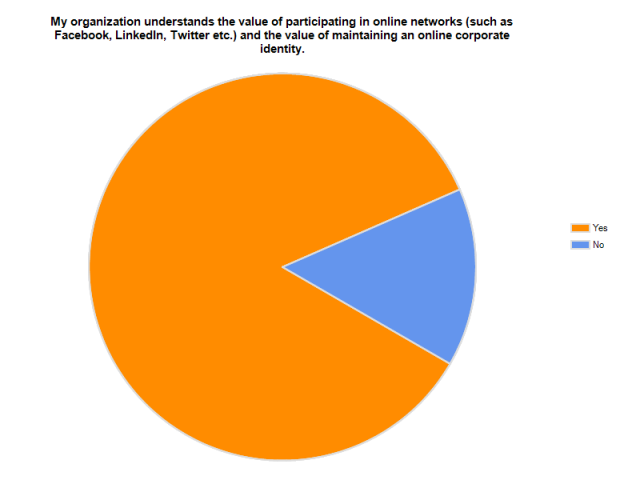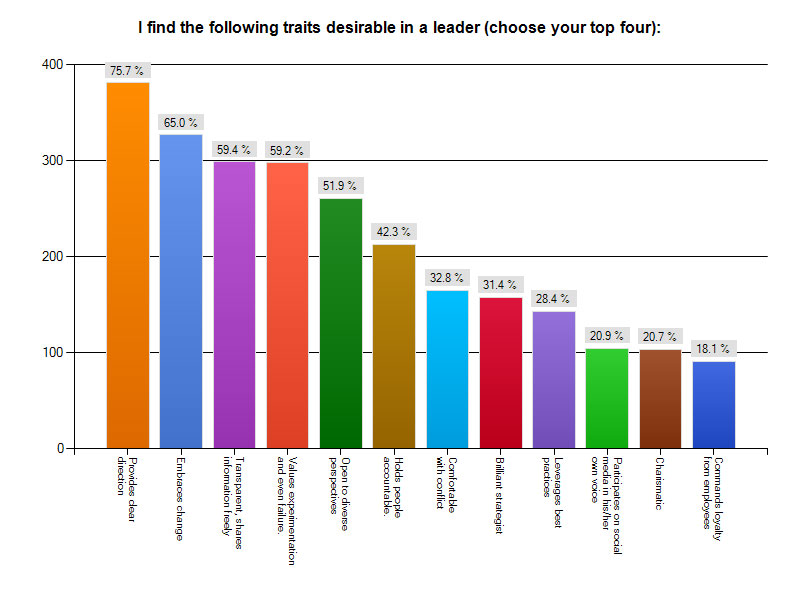This week a survey was released that looked at the nature of leadership in the age of social media. Jamie Notter and Maddie Grant, consultants and co-authors of the book Humanize – How People-Centric Organizations Succeed in a Social World, released the results Tuesday at a workshop held in Washington, DC.
Focused on the association and non-profit worlds, Notter and Grant have been refining their concept of the “social organization” since 2009. Here’s how they describe their survey:
In September 2012, 505 individuals completed a 13-question survey about social media and leadership. Questions gathered data on perspectives about social media implementation in organizations, particularly related to leadership and how leaders are leveraging social media for organizational results.
The results of the survey, completed mostly by individuals who work in organizations that are actively using social tools, provide some interesting insights about the deep ways in which social media has become a disruptive force within our organizations. The following report summarizes the conclusions we draw from the data.
Based on their answers, the people who responded to the survey seem to be among the more advanced when it comes to social media use:
- 84% can participate in social media in their own voice.
- 85% work in companies that understand the value of participating in social media and maintaining an online corporate identity.
- 84% say that their organization uses social media to connect with people, not just promote products and services.
As a study participant I’ve been sent a copy of the findings. One interesting result to me was how the study portrayed the most desirable traits in a leader today. Notter and Grant pull six characteristics from what they call “traditional command and control” model of leadership and six characteristics discussed in their book. A traditional leadership trait — provides clear direction — is ranked the highest, followed by four traits Notter and Grant focus on in their book.
Somewhat counterintuitively, personal social media participation on the part of the leader was ranked highly by only 21 percent of the study participants. The findings are shown in the graph below:
Want to see more? The full report is available here in exchange for taking the Humanize social media leadership survey.

